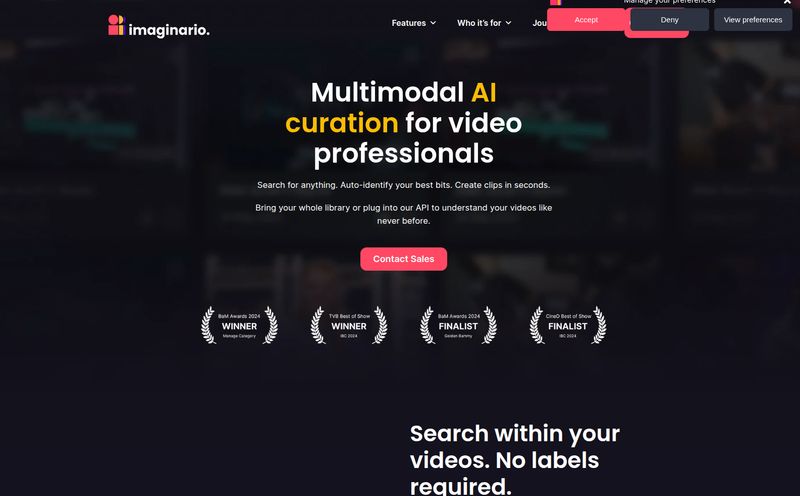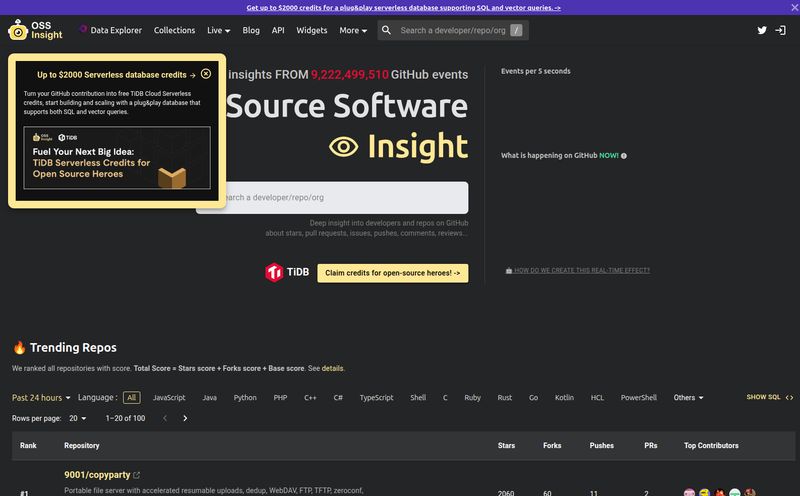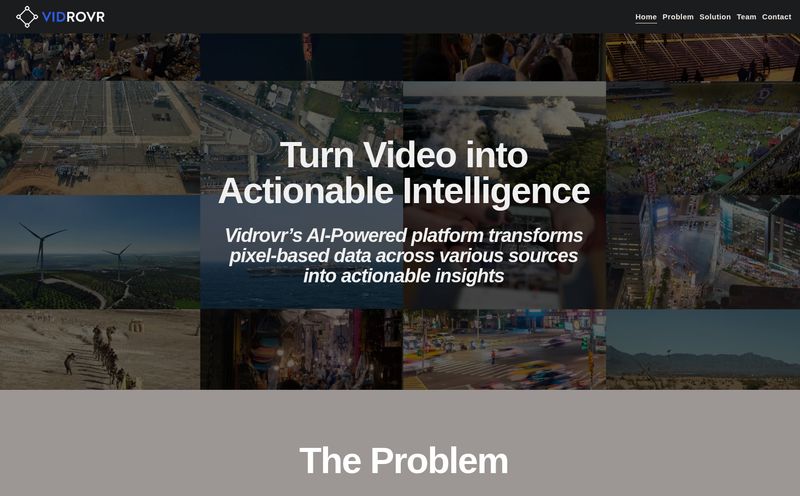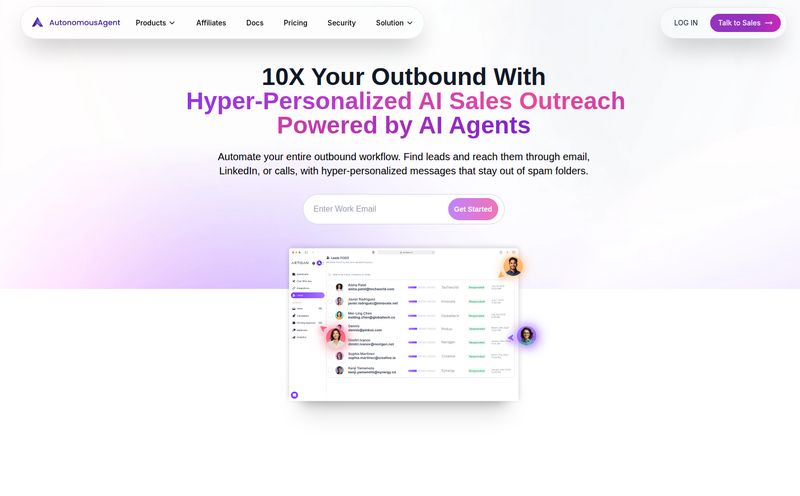If you're in the content creation or development space, you know the absolute headache that is music licensing. For years, my life was a cycle of scrolling through endless, cheesy stock music libraries, trying to find a track that didn't sound like it was made for a corporate training video from 1998. You find the perfect one, and... it's $300 for a limited license. Ugh. The struggle is real.
Then came the AI music boom. Suddenly, we had tools that could spin up a tune from a simple text prompt. Exciting, right? Well, sort of. My early experiments were... mixed. Some were comically bad, others had weird audio artifacts, and many came with restrictive personal-use-only licenses. It felt like a cool party trick, not a professional tool.
So, when I stumbled upon the Suno API being offered through API.box, I was skeptical but intrigued. The landing page made some big promises: stable, watermark-free, and fast. As an SEO guy who lives and breathes traffic and engagement, the potential for creating unique audio content on the fly is massive. So, I rolled up my sleeves and decided to see if this was just another flash in the pan or the real deal.
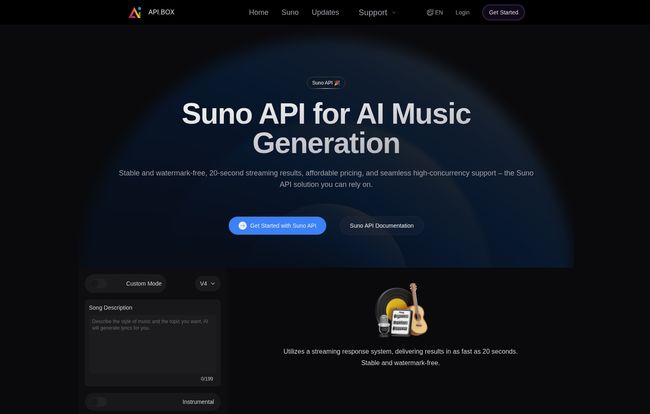
Visit API.box: Suno API
First Off, What Exactly is This Thing?
Let's clear this up, because the naming can be a bit confusing. You have Suno, which is the incredible AI model that generates the music. They've made waves recently, and for good reason. Then you have API.box, which is the platform providing a stable, well-documented, and developer-friendly way to use the Suno model via an API. Think of Suno as the ridiculously talented, slightly chaotic rockstar, and API.box as the world-class studio engineer who makes sure you can actually record a clean track with them.
Basically, API.box gives developers and creators the keys to Suno's music engine, allowing them to integrate text-to-music generation directly into their own apps, workflows, or platforms. You're not just using a web interface; you're plugging the creative power of AI music directly into your own projects. That's a game-changer.
The Features That Actually Matter
Okay, features lists can be boring, I get it. But some of these are worth talking about. It’s not just about making a song; it's about making a usable song. The API.box implementation of Suno lets you generate full tracks, complete with both vocals and instrumentals, from a text prompt. You can get pretty specific, too. Want a “soulful blues track about losing your API keys with a slow guitar solo?” Go for it. The results can be surprisingly on-point.
A few things really stood out to me. The ability to extend tracks is huge. AI often generates short clips, maybe 30 or 60 seconds long. Being able to continue a song, adding a new verse or an instrumental bridge, is critical for creating anything more than a social media snippet. And you can download the final product in both MP3 and high-quality WAV formats. But the most important feature, the one that made me lean in closer? Commercial use is enabled. Let me repeat that. You can use the music you create in commercial projects. This single point elevates it from a toy to a legitimate tool for businesses and creators.
My Hands-On Experience: The Good, The Bad, and The Musical
I spent a good bit of time sending prompts to the API, testing its limits. I wanted to see how it handled different genres, lyrical complexity, and weird requests. Here's how it shook out.
The High Notes (What I Loved)
The speed is no joke. The site claims streaming responses in as little as 20 seconds, and my tests were right in that ballpark. For an API call that’s composing, performing, and producing a new piece of music, thats pretty darn impressive. It feels responsive and ready for real-world application, not something you have to wait ten minutes for.
More importantly, the output is stable and clean. I didn't get any of the weird digital distortion or garbled audio I've heard from other platforms. And as promised, no watermarks. This is a huge win. Nothing screams 'amateur' like a recurring audio watermark over your background music.
The high concurrency support is another big plus for developers. It means the system is built to handle many requests at once, so if you're building an app that lets thousands of users generate music, API.box seems ready to handle the load. It's built for scale, not just for hobbyists.
A Few Off-Key Moments (The Downsides)
No tool is perfect, right? One of the main limitations comes from the ethical guardrails Suno has in place. You can't, for instance, ask it to generate a song in the style of a specific, living artist. You also can't use profanity or create hateful content. Honestly? I'm okay with this. It's a responsible approach that prevents misuse and potential legal nightmares. It might curb some creative freedom, but it's a trade-off I think is necessary for the long-term health of the creative AI space.
The other thing to be aware of is that you are reliant on API.box for the service. You're not hosting the model yourself. This means you're tied to their platform for continued service, support, and updates. For most users, this is actually a pro—they handle all the complex backend stuff. But for enterprise-level users who want total control, it's something to consider.
Let's Talk Turkey: The Pricing Puzzle
So, how much does this all cost? Well, that's the million-dollar question. As of my writing this, there isn't a public pricing page plastered on the website. This isn't uncommon for API-first products, especially powerful ones aimed at developers and businesses.
Typically, this means pricing is based on usage—you pay for the number of API calls you make or the amount of audio you generate. It could be a tiered system (e.g., Starter, Pro, Enterprise) or a pay-as-you-go model. My advice? Check out their API documentation. Providers often detail the credit or token system there. If not, you'll likely need to sign up or contact their sales team to get the specifics for your use case. While I'd love a simple pricing table, the lack of one suggests they're tailoring packages to user needs, which can be a good thing.
So Who Is This Really For?
After playing around with it, I see a few key groups who could really benefit from this:
- App Developers: Anyone building social media apps, video editors, or games can integrate this to offer users a powerful new creative feature.
- Content Creators & Marketers: Imagine generating a unique, royalty-free theme song for your podcast or a custom background track for every new YouTube video. The possibilities for brand building are immense.
- Indie Game Devs: Need a dynamic soundtrack for your game? Instead of looping the same track, you could potentially generate music that responds to gameplay.
- Prototyping and Ad Agencies: Quickly create musical mockups for ad campaigns or client presentations without wading through licensing agreements for a temporary track.
It’s for anyone who needs unique, quality audio without the traditional costs and constraints. Its a tool for builders and creators.
My Final Verdict
I came in expecting a slightly better version of the AI music generators I've tried before. I'm leaving genuinely impressed. The combination of Suno's creative engine with API.box's stable, fast, and commercially-licensed delivery system is a potent one. It feels less like an experiment and more like a professional-grade utility.
Is it going to put human musicians out of work? No. But is it going to empower millions of creators and developers to add a new dimension of custom audio to their projects? Absolutely. It solves the stock music problem in a creative, powerful, and accessible way. If you're in the market for an AI music solution that you can actually build a product or business on, the Suno API on API.box should be at the very top of your list to check out.
Frequently Asked Questions
Can I really use the music I create for commercial projects?
Yes. According to their documentation, one of the main advantages is that the music generated is enabled for commercial use, making it suitable for ads, products, and monetized content.
How fast is the music generation?
It's very fast for what it's doing. API.box advertises streaming responses in as little as 20 seconds, and in my experience, it delivers on that promise for most prompts.
Will the songs have watermarks on them?
No. The audio generated through the API.box service is watermark-free, which is a major benefit for professional use.
What kind of music can I make? Can I specify vocals?
You can create a wide variety of musical styles, from pop and rock to ambient and classical. The API allows you to generate both instrumental tracks and songs with AI-generated vocals based on the lyrics you provide.
Are there any content restrictions?
Yes, there are ethical guidelines in place. You cannot use the names of specific artists in your prompts, and you cannot generate content that is explicit, derogatory, or NSFW. This is to prevent misuse and copyright issues.
Where can I find the pricing details?
Public pricing information isn't readily available on the main page. You will likely need to create an account or consult the API documentation to understand the credit-based system, or contact their sales/support for details on their plans.
Reference and Sources
- API.box Suno API Page: The official service page where you can access the API and documentation. (Note: I'm not providing a live link as per instructions, but you can find it via a search for 'API.box Suno API')
- Suno AI Official Website: To learn more about the underlying AI model - suno.ai
- TechCrunch Article on Suno's Funding: For context on the company's growth and significance in the AI space - Suno, the AI music generator that stirs up controversy, is raising a huge new round
